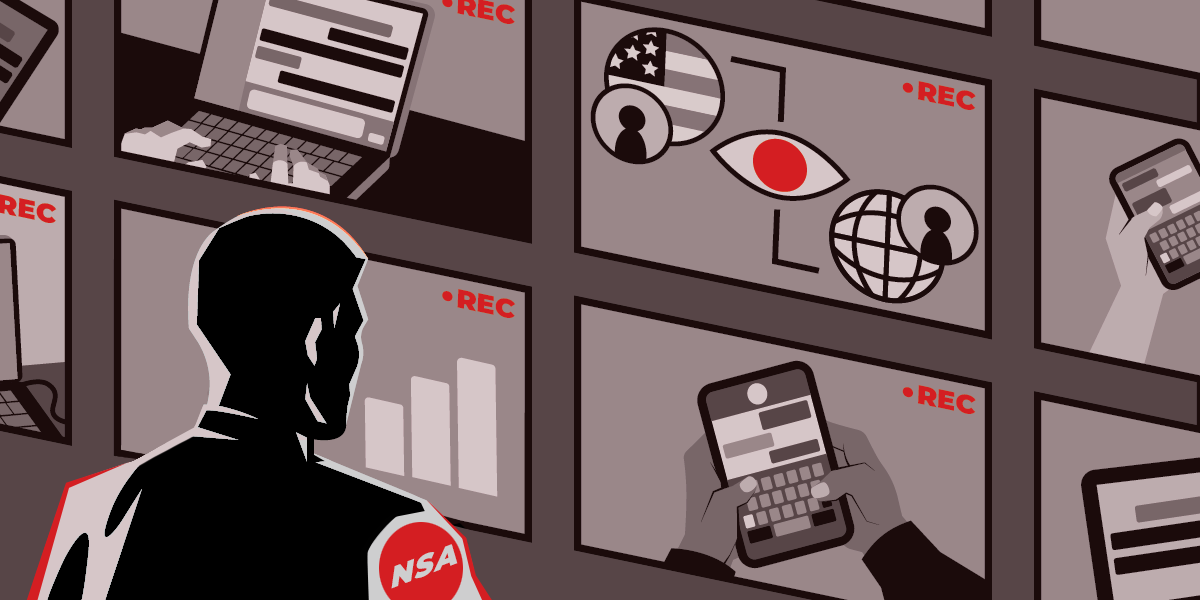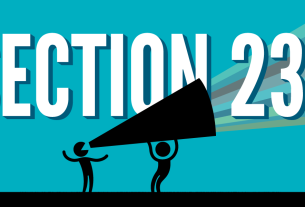With Section 702 of the Foreign Intelligence Surveillance Act (FISA) set to expire at the end of the year, Congress is considering whether to reauthorize the law and if so, whether to make any necessary amendments to the invasive surveillance authority.
While Section 702 was first sold as a tool necessary to stop foreign terrorists, it has since become clear that the government uses the communications it collects under this law as a domestic intelligence source. The program was intended to collect communications of people outside of the United States, but because we live in an increasingly globalized world, the government retains a massive trove of communications between people overseas on U.S. persons. Increasingly, it’s this U.S. side of digital conversations that are being routinely sifted through by domestic law enforcement agencies—all without a warrant.
The congressional authorization for Section 702 expires in December 2023, and it’s in light of the current administration’s attempts to renew this authority that we demand that Congress must not reauthorize Section 702 without reforms. It’s more necessary than ever to pass reforms that prevent longstanding and widespread abuses of the program and that advance due process for everyone who communicates online.
U.S. Senators Ron Wyden, and Sen. Mike Lee, with cosponsors Senators Tammy Baldwin, Steve Daines, Mazie Hirono, Cynthia Lummis, Jon Tester, Elizabeth Warren, and Edward Markey, along with Representatives Zoe Lofren, Warren Davidson have introduced the Government Surveillance Reform Act that would reauthorize Section 702 with many of these important safeguards in place.
EFF supports this bill and encourages Congress to implement these critical measures:
Government Queries of Section 702 Databases
Under the Fourth Amendment, when the FBI or other law enforcement entity wants to search your emails, it must convince a judge there’s reason to believe your emails will contain evidence of a crime. But because of the way the NSA implements Section 702, communications from innocent Americans are routinely collected and stored in government databases, which are accessible to the FBI, the CIA, and the National Counterterrorism Center.
So instead of having to get a warrant to collect this data, it’s already in government servers. And the government currently decides for itself whether it can look through (“query”) its databases for Americans’ communications—decisions which it regularly makes incorrectly, even according to the Foreign Intelligence Surveillance Court. Requiring a judge to examine the government’s claims when it wants to query its Section 702 databases for Americans’ communications isn’t just a matter of standards: it’s about ensuring government officials don’t get to decide themselves whether they can compromise Americans’ privacy in their most sensitive and intimate communications.
The Government Surveillance Reform Act would prohibit warrantless queries of information collected under Section 702 to find communications or certain information of or about U.S. persons or persons located in the United States. Importantly, this prohibition would also include geolocation information, web browsing, and internet search history.
Holding the Government Accountable
A cornerstone of our legal system is that if someone—including the government—violates your rights, you can use the courts to hold them accountable if you can show that you were affected, i.e. that you have standing.
But, in multiple cases, courts interpreting an evidentiary provision in FISA have prevented Americans who alleged injuries from Section 702 surveillance from obtaining judicial review of the surveillance’s legality. The effect is a one-way ratchet that has “created a broad national-security exception to the Constitution that allows all Americans to be spied upon by their government while denying them any viable means of challenging that spying.”
Section 210 of the Government Surveillance Reform Act would change this. This provision says that if a U.S. person has a reasonable basis to believe that their rights have been, are being, or imminently will be violated, they have suffered an “injury in fact” and they have standing to bring their case. It also clarifies that courts should follow FISA’s provision for introducing and weighing evidence of surveillance. These are critical protections in preventing government overreach, and Congress should not reauthorize Section 702 without this provision.
Criminal Notice
Another important safeguard in the American legal system is the right of defendants in criminal cases to know how the evidence against them was obtained and to challenge the legality of how it was collected.
Under FISA as written, the government must disclose when it intends to use evidence it has collected under Section 702 in criminal prosecutions. But in the fifteen years since Congress enacted Section 702, the government has only provided notice to eleven criminal defendants of such intent—and has provided notice to zero defendants in the last five years.
Section 204 of the Government Surveillance Reform Act would clarify that the government is required to notify defendants whenever it would not have had any evidence “but for” Section 702 or other FISA surveillance. This is a common-sense rule, and Congress cannot reauthorize Section 702 without clarifying the government’s duty to disclose evidence collected under Section 702.
Government Surveillance Reform Act
Section 702 expires in December 2023, and Congress should not renew this program without serious consideration of the past abuses of the program and without writing in robust safeguards.
EFF applauds the Government Surveillance Reform Act, which recognizes the need to make these vital reforms, and many more, to Section 702. Requiring court approval of government queries for Americans’ communications in Section 702 databases, allowing Americans who have suffered injuries from Section 702 surveillance to use the evidentiary provisions FISA sets forth, and strengthening the government’s duties to provide notice when using data resulting from Section 702 surveillance in criminal prosecutions must serve as priorities for Congress as it considers reauthorizing Section 702.
TELL congress: End 702 Absent serious reforms



